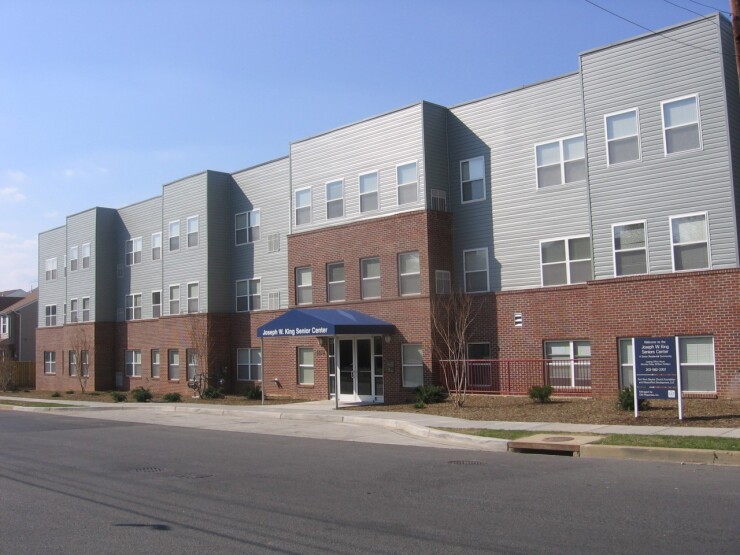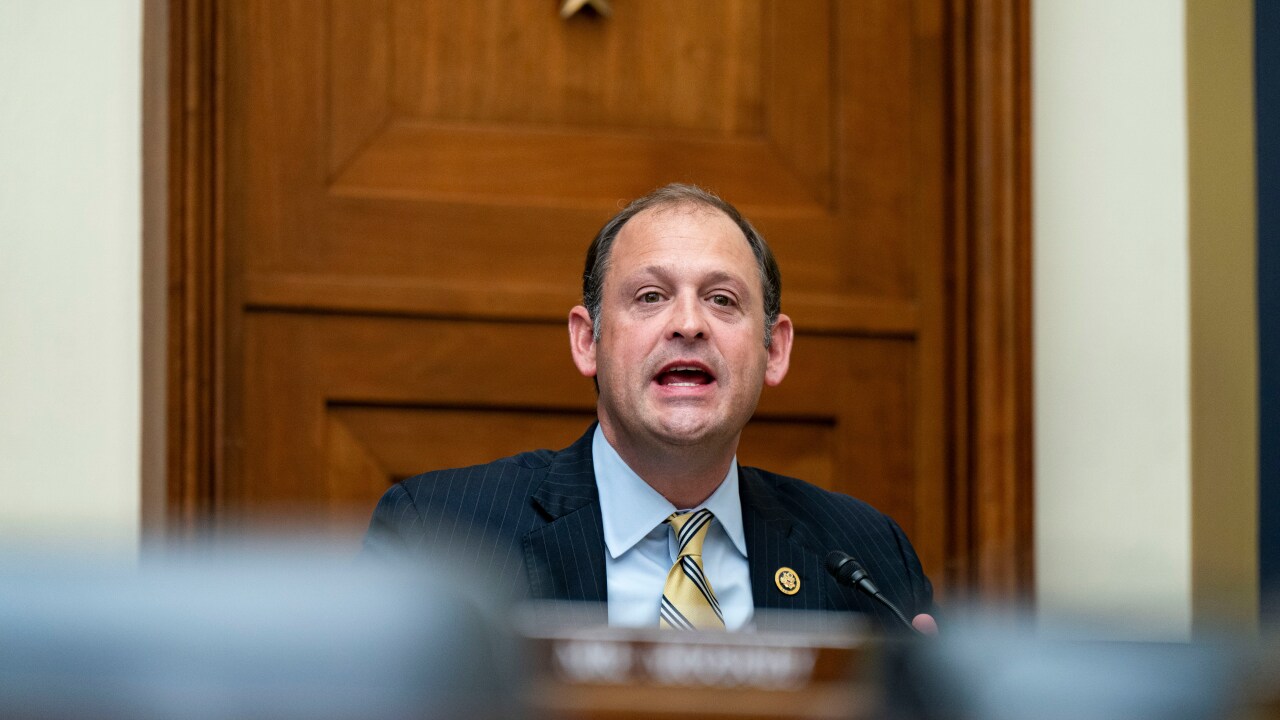The District of Columbia Housing Finance Agency plans to accelerate financing for low-income development after a successful test run of a new framework for borrowing.
The DCHFA sold $34.4 million of Federal Housing Administration-insured pass-through revenue refunding bonds on Aug. 8 in the 38-year-old agency’s first series of bonds issued under its newly established Multifamily Development Program Parity Indenture. The bonds, which were sold in a negotiated sale by senior manager Jefferies, helped create net present value savings of $7.5 million.
“The refunding process will confer a public benefit and serve the public interest by lowering the cost of maintaining and expanding available housing opportunities for low and moderate income persons living in the District,” said Pi Tao Hsu, DCHFA’s vice president, capital markets. “We had a pretty successful execution for the transaction.”

The bonds are secured by mortgages on multifamily residential developments in Washington. The indenture also allows bonds to be backed by a debt service reserve fund established by the agency should there be insufficient revenue to pay debt service in a timely manner.
“There are exciting new initiatives that are being undertaken by DCHFA to further grow and expand its programs,” said Alan Jaffe, managing director and head of the Jefferies Public Finance Housing Group. “This first transaction will continue to provide resources to the Agency for its various initiatives.”
The District of Columbia transaction has potential on a national level, according to Jaffe, who said he sees a strong future for mortgage bonds across the country with an increased focus on trying to combine benefits of tax-exemption with mortgage market structures. He said multifamily indentures like the DCHFA will establish a strong foundation for future borrowing in the housing sector.
“It’s not just this one deal,” he said. “It’s creating a framework that they are going to work on for future deals.”
The DCHFA was founded in 1979 with the goal of expanding home ownership and rental housing opportunities in Washington, D.C., by offering below market rate mortgage loans. The agency issues mortgage revenue bonds that lower developer costs of acquiring, constructing and rehabbing rental housing.
Todd A. Lee, the DCHFA’s executive director and CEO, said the new indenture was started after months of planning to create easier access to the bond market for its multifamily housing program. He said a flexible indenture is crucial to allowing the agency to expand affordable housing opportunities in the nation’s capital.
“That is the vehicle we plan to use to provide liquidity,” Lee said of the multifamily indenture. “Our job as an agency is to provide the most efficient capital to the affordable housing space.”
Moody’s Investors Service analyst David Parsons said that the new indenture creates more options for the DCHFA pursue bond deals that don’t involve conduit issuers. Parsons noted that conduit deals often limit an agency’s financing ability to tackle certain initiatives.
“This new indenture gives them more flexibility,” said Parsons. “It gives them control over the types of transactions they want to pursue.”
The series 2017 bonds priced tighter than the agency’s last pass thru transaction in 2014 with a yield of 3.236% compared to 3.250% at pre-pricing. The deal drew strong investor demand and was oversubscribed by nearly $30 million.
“It priced way beyond what I expected,” said Lee, who prior to taking over the DCHFA in 2016 worked at Fannie Mae for 14 years. “The market was on our side that day.”
Jaffe said road show presentations with investors focused heavily on education about the mortgage industry and Washington, D.C., real estate market. He emphasized that any mortgage bond deal requires further outreach since traditional municipal bond investors may not be as aware of housing fundamentals. Final maturity on the one-term bonds is March 1, 2019.
“When housing agencies usually come to market they are dealing with primarily with investors who don’t track how mortgages typically behave,” said Jaffe. ”We provided investors with a fuller understanding of how mortgages are expected to behave.”
The multifamily bond programs of U.S. housing finance agencies maintained strong credit quality in the 2016 fiscal year, aided by a healthy market for rental housing, S&P said in a report Thursday. Demand for affordable rental units reaching a 50-year high last year and the number of households renting homes in the U.S. grew to 43.3 million, representing 10 million more than 2005 and 37% of the total population, S&P said. The rating agency has affirmed 14 U.S. housing financing agency ratings and upgraded three by one notch each in 2017.
"We attribute these programs' strong credit quality to their asset to liability parity ratios, loss coverage, debt service coverage and the operating performance of their loan pools," said S&P credit analyst David Greenblatt.
Moody’s rated the DCHFA deal at triple-A, citing “exceptionally high quality security” for the bonds since they are backed by loans with strong FHA-provided mortgage insurance provisions. Moody’s also noted “solid” management and oversight from the DCHFA in terms of staffing to provide adequate inspections of multifamily facilities to determine accurate occupancy levels.
“We like that they are hands on, which is quite different from other local financing housing agencies,” Parsons said. “We think they are headed in the right direction.”
Parsons said another strength of the DCHFA transaction is that loan repayments and prepayments cannot be applied to redeem any other series of bonds. The monthly pass-through structure pays interest on a monthly basis and pays down principal from mortgage payments and prepayments as they are received.
Lee said for 2018 and beyond he is focused on expanding single-family and workforce homeownership opportunities in D.C. as real estate values in the city soar, creating a larger need. He also wants to enhance homeowner foreclosure prevention through the Treasury Department's HomeSaver program.
“With housing as important as it is in D.C., we have to be creative with how we finance it,” said Lee. “Throughout the city there is a new energy around for sale and workforce housing.”





